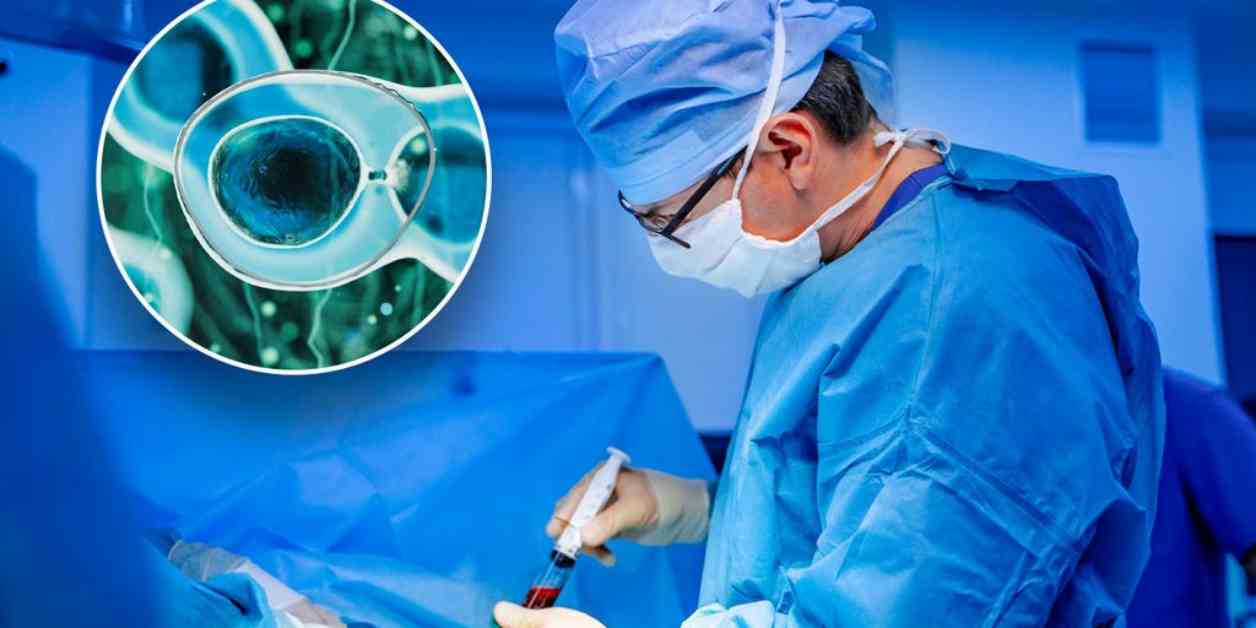The medical world achieved a significant milestone with the first bone marrow transplant from a deceased donor for a leukemia patient. This groundbreaking procedure offers hope to the thousands of individuals diagnosed with life-threatening diseases that could be treated with donated bone marrow. Ossium Health, a bioengineering company, developed a program that provides deep-frozen bone marrow from deceased organ donors, revolutionizing the way bone marrow transplants are conducted.
The First Successful Transplant
Earlier this year, a 68-year-old Michigan woman suffering from acute myeloid leukemia became the first patient to receive a bone marrow transplant from an unrelated organ donor for blood cancer treatment. After a four-month search for a matching donor proved unsuccessful, the patient underwent the transplant at Henry Ford Health in Detroit, Michigan. Thankfully, she is now “rapidly recovering,” according to doctors.
Dr. Muneer Abidi, a hematologist at Henry Ford Health who led the clinical trials for Ossium’s bone marrow product, expressed initial apprehension about using bone marrow from a deceased donor. However, the patient’s robust recovery has been a source of hope and encouragement for the medical community. This success story highlights the potential of utilizing bone marrow from deceased donors to save lives.
The Challenge of Finding Matches
Bone marrow transplants are often the last resort for patients battling blood cancers. However, the process of finding a suitable donor can be arduous and time-consuming. In the current healthcare system, patients in need of a bone marrow transplant must rely on finding a healthy living volunteer who is a close genetic match. This challenge is exacerbated by the fact that bone marrow must be closely genetically matched, making the search for donors even more complex.
Kevin Caldwell, the CEO of Ossium Health, emphasized the difficulty in finding compatible donors for bone marrow transplants. Unlike other organs that can be transplanted into individuals of similar size, bone marrow requires a precise genetic match. This stringent requirement, coupled with the scarcity of willing donors, poses a significant hurdle for patients in need of life-saving transplants.
The Role of Ossium Health
Recognizing the limitations of the current organ donation system, Ossium Health developed a program that taps into the potential of bone marrow from deceased organ donors. By creating a network of organ procurement organizations across the United States, Ossium Health has streamlined the process of recovering and preserving bone marrow from deceased donors. This innovative approach aims to expand the pool of available bone marrow stem cells and improve the chances of finding matches for patients in need.
Through its clinical trial, known as PRESERVE I, Ossium Health is providing bone marrow to acute leukemia patients requiring genetically similar transplants. The success of the first transplant recipient in Michigan has paved the way for future patients to benefit from this groundbreaking approach. Ossium Health’s commitment to leveraging bone marrow from deceased donors showcases the potential of this procedure in transforming the landscape of organ transplantation.
The Benefits of Deceased Donor Bone Marrow
One of the key advantages of using bone marrow from deceased donors is the ability to recover a larger quantity of the organ. Unlike living donors who require their bone marrow to live, deceased donors offer a surplus of bone marrow that can be used for multiple transplants. This abundance of stem cells from deceased donors enhances the effectiveness of transplants and improves patient outcomes.
Cryopreserved bone marrow from deceased donors also offers immediate availability, a critical factor for patients with aggressive diseases like leukemia. The ability to ship the product quickly to patients in need can mean the difference between life and death. This rapid response time ensures that patients receive timely and effective treatment, increasing their chances of recovery.
In addition to the logistical benefits, using bone marrow from deceased donors eliminates the need for donors to undergo invasive procedures, such as bone marrow aspiration. This approach reduces the burden on living donors and simplifies the transplant process, making it more accessible to a broader population of patients.
Consent and Regulation
Ossium Health places a strong emphasis on obtaining consent from donors and their families throughout the process. The dual-consent approach ensures that donors are fully informed and willing participants in the organ donation process. By following strict protocols for consent and regulation, Ossium Health upholds the ethical standards of organ donation and transplantation.
While cryopreserved bone marrow from deceased donors is not subject to FDA approval, Ossium Health remains committed to conducting studies to generate data for healthcare professionals. This data-driven approach aims to build a robust evidence base for the efficacy and safety of using bone marrow from deceased donors in transplants. By adhering to rigorous research standards, Ossium Health seeks to advance the field of organ transplantation and improve patient outcomes.
The Future of Bone Marrow Transplants
The success of the first bone marrow transplant from a deceased donor marks a significant milestone in the field of organ transplantation. As Ossium Health continues to expand its program and conduct clinical trials, the potential for using bone marrow from deceased donors to save lives becomes increasingly promising. The company’s innovative approach offers hope to patients in need of urgent transplants and underscores the importance of expanding the pool of available organ donors.
Looking ahead, Ossium Health aims to scale up its program and provide bone marrow stem cells from deceased donors to a wider range of patients. By leveraging the benefits of cryopreserved bone marrow, the company seeks to revolutionize the way organ transplants are conducted and improve outcomes for individuals with life-threatening diseases. With a focus on innovation and patient-centered care, Ossium Health is paving the way for a future where virtually everyone in need of a bone marrow transplant can access this life-saving treatment.




